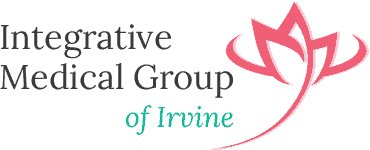I’m sending a huge “Thank You!” to Lauren Ash for sharing her story about Polycystic Ovary Syndrome and her battle with depression that could have taken her life.
I had to pleasure of meeting Lauren last month. She and I spent much of two days together, working as volunteers on Capitol Hill, in Washington D.C. as advocates for PCOS research and awareness. While there, we both shared our personal battles with PCOS.
Lauren’s journey into depression and her arduous road to healing is a story I encounter frequently among my patients with PCOS.
Mental health struggles are a common and undertreated symptom of PCOS. Women with PCOS have five times the rate of anxiety and ten times the rate of depression as non-PCOS women. And even more alarmingly, women with PCOS are seven times more likely to commit suicide than non-PCOS women.
If you ever believe that you might hurt yourself, please get help!
National Suicide Prevention Lifeline
Call 1-800-273-8255
Many doctors and patients wrongly believe that PCOS symptoms like weight gain, acne, and male-pattern hair growth on a woman’s face and other body regions cause PCOS women’s depression and anxiety. This is not true!
While these symptoms clearly add to a woman’s stress, women with PCOS aren’t unhappy and even committing suicide because they don’t like how they look.
PCOS, estrogen, and mental health
PCOS is an endocrine disorder, which means that critical hormones in women with PCOS are out of balance and out of rhythm. Most obviously, women with PCOS have high androgens such as testosterone and low estrogen. These improper hormone levels cause all of the damaging symptoms of PCOS, including mood disorders.
Estrogen receptors are present throughout the brain, and estrogen is well recognized as an anxiolytic, a substance that reduces anxiety, and as an antidepressant. Proper estrogen is essential to female emotional health, and estrogen deficiency frequently leads to mood problems. We see this in women with PCOS and also in women who are postpartum, in menopause, or are using oral contraceptives.
Estrogen deficiency also causes sleep problems and circadian rhythm dysfunction. All humans have a Master Clock, the suprachiasmatic nucleus, located in their brains that tracks day and night and keeps us on schedule. The Master Clock has estrogen receptors, and when a woman is estrogen deficient, the Master Clock lags, creating a state of perpetual jet lag.
Both poor sleep and a poorly aligned circadian rhythm are powerful compounding risk factors for mental health problems.
Restoring natural rhythms
Many doctors “treat” PCOS by prescribing birth control pills. They’re hormones, right? Nope. Birth control pills and other “hormonal” contraceptives are synthetic hormone-mimickers. They are endocrine disruptors that actually cause a state of artificial estrogen deficiency, which is why they are linked to depression and suicide.
Birth control pills cover up some of the symptoms of PCOS like menstrual irregularity, but they can make mental health problems worse.
The real answer is to treat the hormonal and rhythmic imbalances that PCOS causes. One of the most powerful ways to do this is to reestablish a robust circadian rhythm. To do this:
- Get bright sunlight or use a light therapy lamp every morning.
- Eat a large breakfast and a smaller lunch and dinner.
- Dim your lights in the evening and then sleep in a dark, dark room.
- Stop eating at 6PM and fast overnight for 12-13 hours.
This may seem simple, but these strategies lead to weight loss, improved insulin, lower testosterone, and more regular menstrual cycles. And, of course, improved mental health.
Circadian rhythm is just one of the powerful, natural tools that I use in my integrative medical practice to address the wide ranging symptoms of PCOS. Other helpful strategies include a high-fiber and plant-based diet, exercise, meditation, supplements (like the myo-inositol that Lauren Ash takes), and mind-body medicine. All of these approaches greatly enhance the overall health and emotional wellbeing of women with PCOS, without relying on synthetic endocrine disruptors.
Depression and anxiety are common problems for women with PCOS, but they are treatable!
I am so grateful that Lauren Ash bravely shared her battle with depression and suicide. This is a critical and undertreated symptom of PCOS.
And I am so proud to work alongside Lauren Ash and the other members of PCOS Challenge to advocate for more funding into PCOS research. Because, while it’s true that there is so much we can do today to treat PCOS, there is still so much that we don’t know about this common endocrine disorder and there are far too many women who go untreated or mistreated. No woman should have to go through the struggles Lauren did to feel happy and healthy. We must do better!
References:
Wang et al. Curr Neuropharmacol. 2015;13(4):524-535
Maliqueo et al. Endocrinology. 2013;154(1):434-445
Upadhyaya et al. Int J of Med Sci and Pub Health. 2015;5(4):681-683
Skovlund CW et al. Association of hormonal contraception with suicide attempts and suicides. Am J Psychiatry. 2017 Nov 17.
Skovlund CW, Mørch LS, Kessing LV, Lidegaard Ø. Association of Hormonal Contraception With Depression. JAMA Psychiatry. 2016;73(11):1154–1162.
Rachel Leproult, Egidio F. Colecchia, Mireille L’Hermite-Balériaux, Eve Van Cauter; Transition from Dim to Bright Light in the Morning Induces an Immediate Elevation of Cortisol Levels, The Journal of Clinical Endocrinology & Metabolism, Volume 86, Issue 1, 1 January 2001, Pages 151–157.
Jakubowicz, D. , Barnea, M. , Wainstein, J. and Froy, O. (2013), High Caloric intake at breakfast vs. dinner differentially influences weight loss of overweight and obese women. Obesity, 21: 2504-2512.
Tan, Jing et al. “Increased Risk of Psychiatric Disorders in Women with Polycystic Ovary Syndrome in Southwest China.” Chinese medical journal vol. 130,3 (2017): 262-266.
Bishop SC, Basch S, Futterweit W. “Polycystic ovary syndrome, depression, and affective disorders.” Endocr Pract. 2009 Jul-Aug;15(5):475-82.










I loved this article and as a sufferer of PCOS this was incredibly helpful information.
its really amazing blog on polycystic ovarian syndrome acne help its really great blog with amazing content its worth reading it thanks for sharing